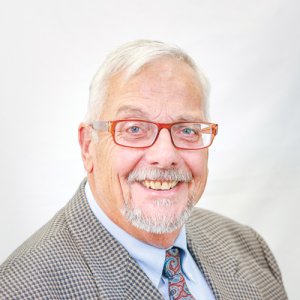WILDWOOD – Jews in modern day Poland enjoy more support and understanding than they have in the United States, especially in light of protests of Israel’s response to the attack of Oct. 7, 2023.
Jews in Poland do not fear wearing the trappings of their faith in public, including the kippah, or yarmulke, and prayer shawls.

According to Adrian Charbot, a political counselor with the Polish Embassy in Washington, D.C., there are Jewish festivals in every major city in Poland, with the Krakow festival attracting 15,000 to 20,000 people – and only five police officers – who were mainly there to provide directions.
“This shows how safe it is for Jews in Poland,” he said.
Chrobot was the guest of honor at a program held at the Beth Judah Temple in Wildwood, Saturday, Aug. 10. The program included a presentation by Karen Uslin, Ph.D., who is based in the Washington D.C. area, and serves as an adjunct professor at Stockton University.
Uslin is the director of research for the Defiant Requiem Foundation, an organization formed for the remembrance of musicians imprisoned in the Terezín concentration camp, located about 40 miles northwest of Prague. From 1941 to 1945, the Nazis used Terezín as a transit camp, ghetto, and concentration camp for Jewish prisoners. Kept in horrific conditions, Jewish musicians were forced to provide concerts as part of a Nazi propaganda campaign.
Uslin was joined by Chrobot, whose office has been reaching out to the Jewish American sector – including facilitating Polish citizenship for those of Polish ancestry – on a study trip to Poland in June, with 2024 being the 80th anniversary of the Warsaw Ghetto Uprising. The trip was sponsored by the Polish Foreign Ministry for participants to learn about the organizations, people and places that are keeping modern Jewish culture alive in Poland and preserving Poland’s history, Uslin said. The tour, she said, began in the capital city of Warsaw, and immediately the images often painted of Poland under Soviet occupation were shattered.
“We think of Poland as a dark, depressing place, and nothing could be further from the truth. Even within our first hours in Warsaw, and our first encounters with Jewish life in Poland, what you cannot fail to notice is the vibrancy of the culture,” Uslin said.
Uslin said the term “Polish death camps” was inaccurate, as they were Nazi death camps established in occupied Poland. The tour, she said, began with two controversial institutes in Poland, the Institute of National Remembrance and the Pilecki Institute. IPN, she said, has a stated goal of investigating crimes committed against Poland from 1917 through 1990, which is after the fall of the Soviet Union. The Pilecki Institute, she said, focuses on the consequences of the Nazi and Soviet totalitarian regimes on Polish citizens.
The Pilecki Institute was accused of whitewashing history because of it focusing on Poles who gave aid to Jews. The IPN, Uslin said, is mostly government funded and displays more of a political angle, whether intentionally or not. She said the current director of the Pilecki Institute is now “intent on bringing the institute back into the good graces of the public.”
During the study trip they toured facilities and areas that highlighted the past, present and, perhaps, future of Jewish life in Poland.
Chrobot, who has his Ph.D. in political science from the University of Lisbon in Portugal, said there are roughly 1,000 years of Polish-Jewish relations to look back on. Uslin said in her presentation that the POLIN Museum in Warsaw has been established to cover that history. The POLIN Museum was erected on the site of the former Warsaw Ghetto.
“Much of this material and these archives were behind the Iron Curtain for so long that only now are Poles and the rest of the world able to go through and learn more about Poland and take stock of everything to plan for Jewish life in Poland moving forward,” Uslin said.

Chrobot said the history of Poland, in general, has been revisited after 1989, which saw the collapse of the Soviet Union and the liberation of Poland.
The nation has, he said, survived despite the worst efforts of the Nazis and Soviet communists to destroy both the history and culture of the Polish people, as well as religious practices.
“A whole period of our history was lost,” Chrobot said.
The Nazis killed about six million Jews during the course of World War II, with roughly half of them from Poland.
“There were Jews at all levels of society,” Chrobot said, saying that most Jews had assimilated to Polish culture. Much of what is considered traditionally Jewish food comes from Poland, he said.
The Jewish people are one of four recognized ethnic minorities in Poland. Others include the Lemke people, who were Ruthenian dwellers of the Carpathian Mountain region, Tartars, a small Muslim group, and the Roma people, often called Gypsies. Poland, a country that is currently 87% Roman Catholic, is currently 2% to 3% Jewish, and only 1% to 2% Protestant.
Both Uslin and Chrobot were raised Roman Catholic. Uslin said, after traveling to Poland, she has discovered her own Bizantine Catholic heritage, growing out of roots in the Carpathian Mountain region of eastern Europe.
Chrobat teaches diplomacy and international relations in Poland and Spain.
The two invited the attendees to visit Poland and look deeper into the past and see the current conditions in Poland.
Contact the reporter, Christopher South, at csouth@cmcherald.com or 609-886-8600, ext. 128.









